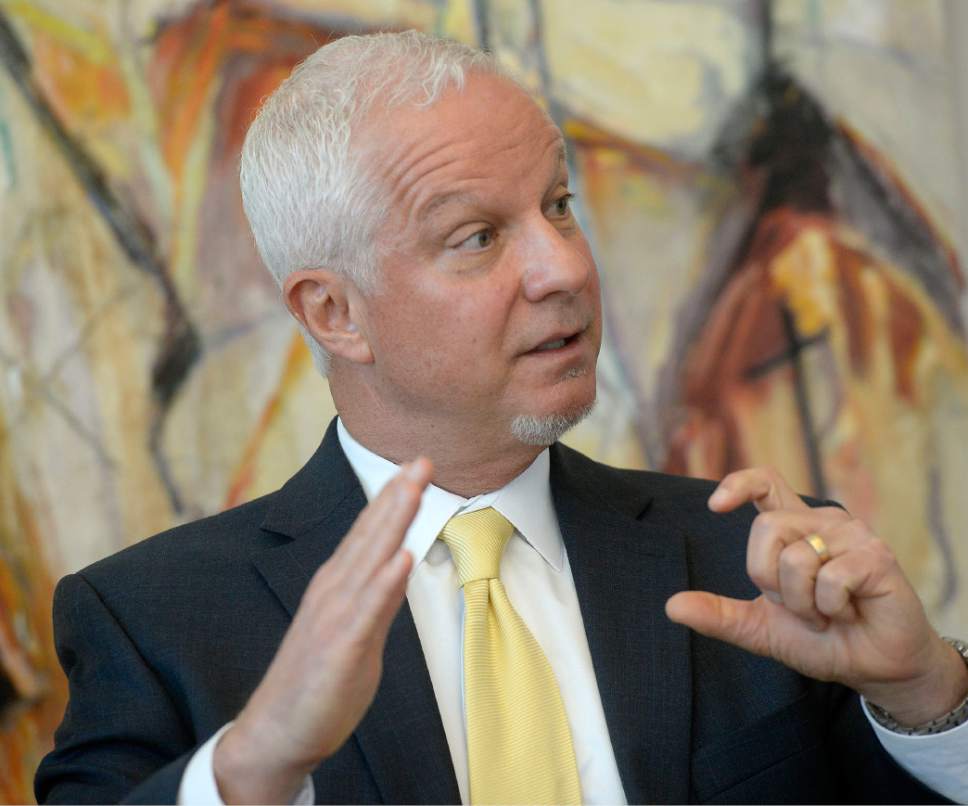This is an archived article that was published on sltrib.com in 2016, and information in the article may be outdated. It is provided only for personal research purposes and may not be reprinted.
Give new Utah Transit Authority CEO Jerry Benson credit for turning UTA's attention from building out the kingdom to serving its loyal subjects.
He has no choice. The pitchforks are out.
Benson has been getting up early and climbing on trains and buses, talking to riders, drivers and anyone else with an opinion on mass transit. He is both staying close to his customers and leading his employees by example.
Honestly, moving UTA more toward operations and less to large capital projects is unavoidable. After voters passed a bond in 2006, UTA borrowed enough to finish out rail and other projects up and down the Wasatch Front.
We're still paying for it. Roughly a third of UTA's annual operating budget of $330 million goes to servicing that $2 billion debt.
Meanwhile, voters have cut UTA off. When counties with UTA service put a sales-tax increase for transportation on the ballot in 2015, it failed in the two biggest counties, largely because UTA couldn't convince voters it would spend the money wisely.
So Benson is pledging a more modest future based on maximizing the system it has rather than expanding it.
It won't be easy. Amid a population that only grows, UTA's bus and train boardings have actually declined slightly over the past two years. The traditional explanation, and it has some merit, is that amid an improving economy and cheaper gas prices, more people can and do use cars.
But that explanation also exposes a crack in UTA's strategy. It has probably invested too much in chasing those potential customers who have other options. Meanwhile, lower-income neighborhoods with more carless workers are underserved. Same with millennials who are passing on cars altogether.
UTA appears to recognize that, and it also recognizes that any changes will need to happen with existing resources.
A new fare system could be part of it, but it also will require changes in routes and frequency for buses, with each change producing its own winners and losers among customers.
And that brings up another pledge from Benson that is equally important: transparency.
If UTA is to re-arrange its service to serve more people (and serve them better), it needs to pull the public into those changes at the earliest moment. It needs to open up its processes and data so people know what is happening before there is no turning back.
That hasn't always happened in the past, and it is at the heart of UTA's public trust issue.
Benson's willingness to meet his customers where they are is both admirable and refreshing. He also should throw open the doors to the castle.



